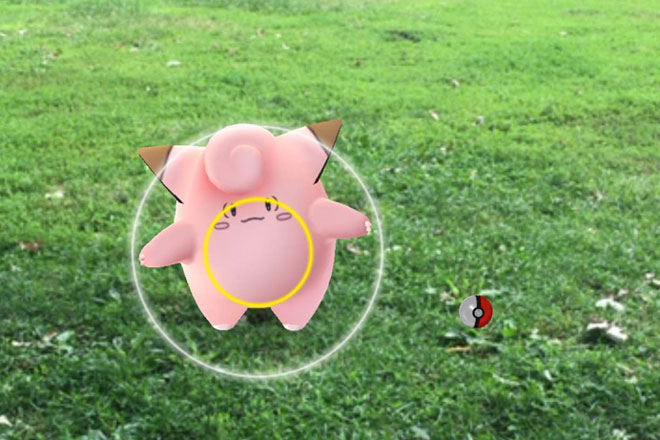
It is incredible how quickly Pokemon Go has permeated through our culture. Even if you don’t play it yourself, it is likely that you know someone that does. Smartphone games have gone viral before, but this one is very, very different when viewed from a human behavior and habit-change perspective.
If you’re not familiar, Pokemon Go is a smartphone game that uses a real world map and GPS location tracking. You collect Pokemon creatures by wandering around your neighborhood and capturing them when they pop up. The game is getting a lot of buzz because it is totally addicting, and hilariously, quite obvious when people are playing it.

When playing, people hold their phones up at a certain angle, usually with one hand, and walking while looking at the game’s map to see when a Pokemon Go creatures might emerge. Suddenly, they’ll stop and then slide their finger upwards on the screen while they toss a Pokeball to try to catch the one.
It’s hard to miss and looks quite ridiculous to an observer that happens to see this out and about. That effect is multiplied due to the massive number of people playing the game in just about every public place you can imagine.
It’s clear that the melding of the real and digital worlds has become a huge hit, and this is really just the beginning of where this type of interactive game will go.
As silly as it looks, it’s fun and it hits on all the right things to become massively addictive, so I can definitely see why so many people are playing it.
From a Break the Twitch perspective, Pokemon Go is as twitchy as it gets. It gets you to check your phone more than ever, constantly pulling it out and playing the game instead of paying attention to the world around you. People are walking around parks, neighborhoods and museums staring directly into their phones and barely looking up lest they run into a wall or something.
#PokemonGO is simultaneously getting people to exercise, visit parks and green spaces, while also paying almost no attention to them.
— Anthony Ongaro (@anthonyongaro) July 13, 2016
But on the other hand, they’re… outside. They’re not sitting at home on the couch, people are out walking, visiting businesses, getting into parks and actually moving around. I joked that Pokemon might be able to solve the American obesity epidemic, and that’s when this idea hit me.
Pokemon Go is actually a revolutionary app because it has a different habit-change model than 99% of app startups out there.
The majority of startups are looking to build an app that makes something easier for us to do. They look to change human behavior by reducing the effort required to do that behavior, thus getting us to use their product instead of whatever we had done previously.
Take taxis, for example. Before Uber and Lyft, getting a ride was kind of a pain in the ass. You had to call a dispatch number, wait around for an unknown range of time, “He’ll be there in 15-45 minutes” and hope that your taxi didn’t forget about you all together. It was relatively unreliable, not timely, and inefficient, but at the time it was the best option.
Uber came onto the scene and made calling a cab as simple as pressing a single button. You could track the driver and see how soon they’d pick you up, and service was reliable as drivers were rated by all previous customers. They effectively reduced the effort required to accomplish your goal, removed several pain points, and thus changed your behavior.
This is the same model that the majority of startups are using – take something and reduce the friction required to do that thing by using their app, then boom. You have a user base.
The reason most companies utilize the exact same habit-change model is because it is simply easier to do. As Nyv Eyral states in his book Hooked:
It is easier to reduce the effort required to complete a task than it is to increase someone’s motivation to do it.
In other words, people are lazy and you need to make life easier for them in order to change a habit they already have. And that is why Pokemon Go is so very different. Instead of making something easier, it is actually increasing people’s motivation to walk and get exercise while visiting parks, museums, and popular public places. You’re more likely to catch a variety of Pokemon Go creatures when you are out walking around, so it motivates people to do exactly that. Public spaces have more creatures than less densely populated areas, so it motivates people to go to them.
Pokemon Go is revolutionary because it finally bucks the trend of dumbing down tasks in our daily life and actually motivates us to get out there and do something. I’d put it along the likes of Strava, a bicycling app that makes it easy to track and share your rides, while also having a competitive nature to ride more than your friends.
I’m still not sure where I stand on whether or not the game is actually productive for our society as a whole. Perhaps millions of people will establish a daily habit of taking a 30 minute walk to go collect Pokemon, and that habit may stick long after the game is gone. Who knows what the actual results will be.
What I do know, is that it accomplished something that very few other companies have been able to do, and that is get us off the couch and out into the world by increasing our motivation to do so, and not just making some menial task slightly easier for us to do.
